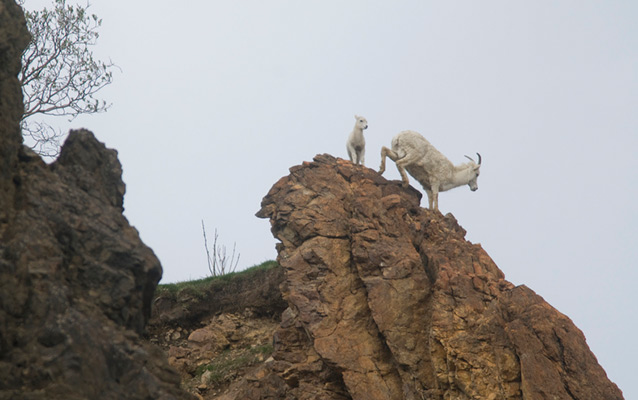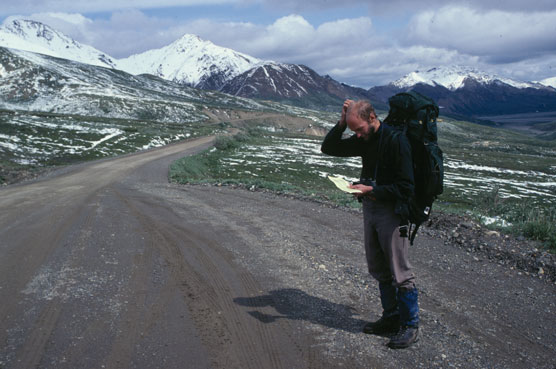Series: Dall Sheep in Alaska's National Parks
Climate Change and Your National Parks
This is an example of a "story-intro" class of text. While acknowledging his genius as a political theorist, historians are often less than enthusiastic about James Madison’s performance as a wartime President.

Once covering a larger area, visitors now walk a path to Exit Glacier showing how it has receded in the last 60 years at Kenai Fjords National Park. In the lower right corner of the image you can see where the glacier terminated in 1951.
NPS photo
There is no doubt that climate change is a complex subject. Scientists who study Earth's climate are looking at more than just weather statistics over time. They consider many factors like atmospheric conditions, sea level, ocean temperature and evaporation rates, amount of water frozen in glaciers and icecaps and rates of melting. They examine how the climate has changed in the past by measuring relative amounts of atmospheric gasses trapped in ice cores for tens of thousands of years. Our planet has experienced many shifts in its climate over time. The Earth where dinosaurs roamed was very different from the place we know today! The biggest difference being that based on what scientists understand about past trends, the changes we are seeing today are far more rapid than anything that has occurred in our planet's history.
"This is an example of a blockquote. Lorem ipsum dolor sit amet, consectetur adipiscing elit. Integer posuere erat a ante."
Some may see climate change as a dire prediction for a future over which we have no control. But just as human civilization had a role in causing the current climate change, we can use our creativity and ingenuity to find ways to respond to and overcome its challenges.
Climate science helps us understand more clearly the causes of climate change and gives us the tools to work towards a more sustainable future.

A hiker studies a map while standing on the Denali Park Road.
NPS photo
There is no doubt that climate change is a complex subject. Scientists who study Earth's climate are looking at more than just weather statistics over time. They consider many factors like atmospheric conditions, sea level, ocean temperature and evaporation rates, amount of water frozen in glaciers and icecaps and rates of melting. They examine how the climate has changed in the past by measuring relative amounts of atmospheric gasses trapped in ice cores for tens of thousands of years. Our planet has experienced many shifts in its climate over time. The Earth where dinosaurs roamed was very different from the place we know today! The biggest difference being that based on what scientists understand about past trends, the changes we are seeing today are far more rapid than anything that has occurred in our planet's history.
Some may see climate change as a dire prediction for a future over which we have no control. But just as human civilization had a role in causing the current climate change, we can use our creativity and ingenuity to find ways to respond to and overcome its challenges.
Climate science helps us understand more clearly the causes of climate change and gives us the tools to work towards a more sustainable future.
Experience More
on NPS.gov
Articles
- Planning: War of 1812 Preservation Study
- Series: Land Operations in the War of 1812
- Series: American Indians and the War of 1812
